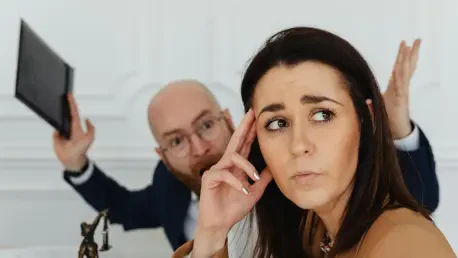Today, we’re thrilled to sit down with Sofia Khaira, a renowned specialist in diversity, equity, and inclusion, who brings a wealth of expertise to talent management and development. With a passion for creating inclusive workplaces, Sofia has dedicated her career to helping organizations navigate complex interpersonal dynamics, including conflict within teams. In this interview, we’ll explore how conflict can be a powerful tool for growth, the importance of addressing disagreements head-on, and practical strategies for turning challenges into opportunities for stronger, more creative teams.
What inspired you to view conflict as a positive force within teams, rather than something to avoid?
I’ve always believed that conflict, when approached with the right mindset, can be a catalyst for growth. Early in my career, I worked with a team that was stuck in a cycle of avoiding tough conversations. When we finally tackled a major disagreement about project priorities head-on, it was like a weight lifted. That experience showed me that conflict isn’t the enemy—it’s often a sign that people care deeply about the work. It’s an opportunity to uncover new perspectives and build trust, as long as it’s handled with respect and intention.
Why do you think so many people in the workplace fear conflict, even when it could be beneficial?
I think it comes down to how we’ve been conditioned to see conflict as a personal attack or a sign of failure. Many of us grow up avoiding disagreements to keep the peace, and that carries into professional settings. There’s also this misconception that conflict always leads to hostility or damaged relationships. In reality, when fear stops us from engaging, it stifles creativity and keeps teams from challenging the status quo. It can create a culture of silence, where real issues fester beneath the surface.
You’ve mentioned that unresolved conflict is the true danger. Can you paint a picture of what that looks like in a team environment?
Unresolved conflict is like a slow leak in a boat—you might not notice it at first, but over time, it sinks you. It shows up as passive-aggressive comments, lack of collaboration, or people disengaging from discussions. I’ve seen teams where small grudges turned into major divides because no one addressed the root issue. The impact is huge: trust erodes, productivity drops, and resentment builds. It’s not the disagreement itself that harms a team; it’s ignoring it that does the damage.
How can conflict, when managed effectively, spark creativity among team members?
Conflict often brings diverse ideas into sharp focus, and that clash can ignite creativity. I remember working with a marketing team that disagreed on a campaign direction—one group wanted bold and edgy, the other safe and traditional. Through structured debate, they blended elements of both, creating something innovative that neither side had envisioned alone. The key is creating a safe space where disagreement is about ideas, not personal attacks, and where everyone feels heard. That’s when conflict becomes a breeding ground for breakthroughs.
You’ve said conflict can actually strengthen relationships. Can you share how that plays out in real life?
Absolutely. When conflict is handled with empathy and openness, it can deepen trust. I’ve seen teams come out of disagreements closer because they’ve navigated vulnerability together. For instance, after a heated discussion about workload distribution, a team I worked with took time to understand each other’s pressures. They not only resolved the issue but also built a stronger sense of camaraderie. It’s about focusing on shared goals and showing respect during the process—those behaviors turn tension into tighter bonds.
Why is it so critical to address conflict quickly, rather than letting it simmer?
Speed matters because small issues can snowball into major problems if ignored. A minor misunderstanding about roles can turn into deep resentment if it festers. Acting fast prevents escalation and shows the team that their concerns are a priority. But it’s not just about rushing in—you have to be thoughtful. I always advise taking a moment to assess the situation, then addressing it directly with clarity and calm. That balance keeps things from spiraling while ensuring the conversation is meaningful.
You’ve emphasized the importance of listening over speaking during conflict resolution. Why is that such a powerful tool?
Listening is the foundation of understanding, and without it, you’re just guessing at what’s really going on. When you truly listen—using your ears and eyes to pick up on tone, body language, and emotions—you can get to the heart of the issue. I encourage leaders to ask open-ended questions and reflect back what they hear, like, “It sounds like you’re frustrated because of X, is that right?” That kind of active listening not only uncovers root causes but also makes people feel valued, which de-escalates tension.
Can you elaborate on what it means to communicate effectively when dealing with conflict?
Effective communication in conflict isn’t just about the words you choose—it’s about tone, timing, and intent. I’ve seen situations where a well-meaning message fell flat because it was delivered with frustration or at the wrong moment. As a leader, your goal is to ensure the other person understands your perspective and feels safe sharing theirs. That means being clear, avoiding blame, and checking in to see how your words are landing. It’s about building a bridge, not just broadcasting your point of view.
What advice do you have for our readers who want to transform conflict into a positive force in their own teams?
My biggest piece of advice is to reframe how you see conflict—view it as a doorway to growth, not a dead end. Start by fostering a culture where disagreement is okay, as long as it’s respectful. Equip yourself and your team with skills like active listening and focusing on shared goals. And don’t shy away from tough conversations; address issues early with curiosity, not judgment. Remember, conflict isn’t about winning—it’s about finding a way forward together. With practice, you’ll see it strengthen your team in ways you didn’t expect.









